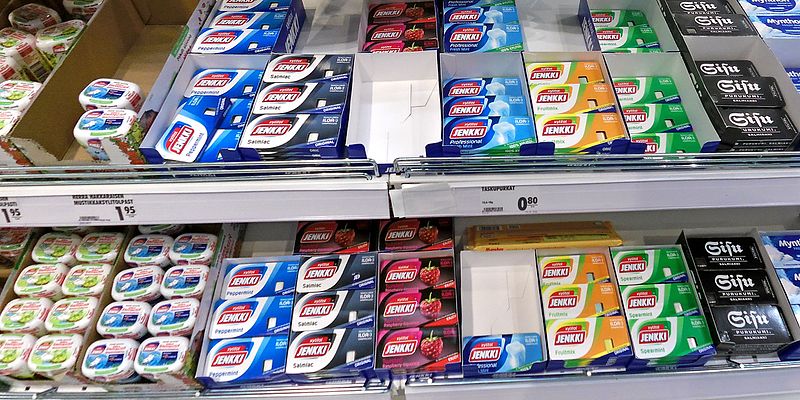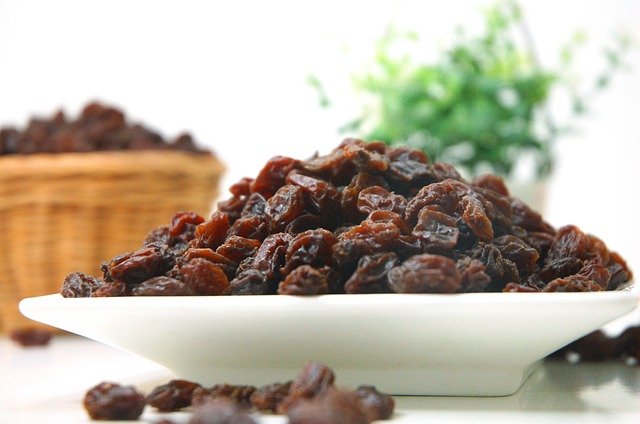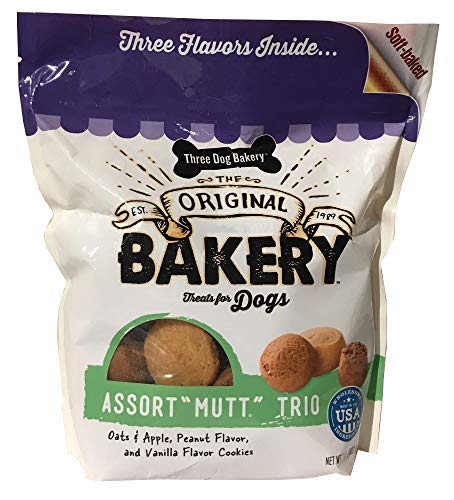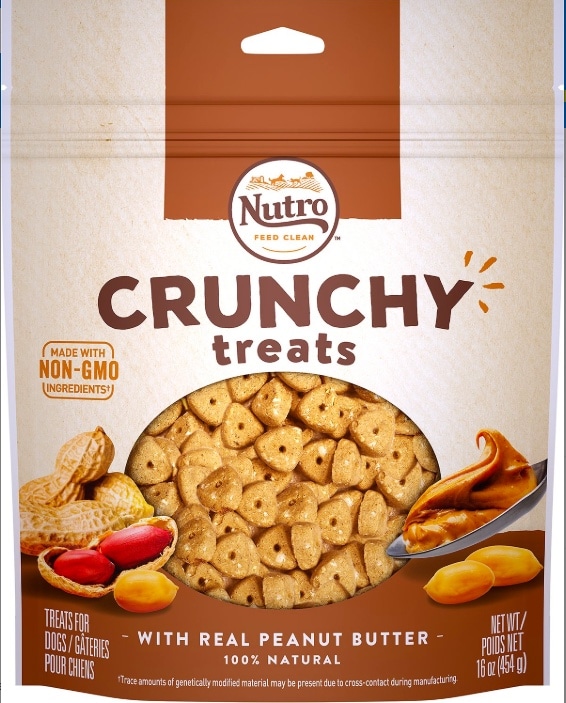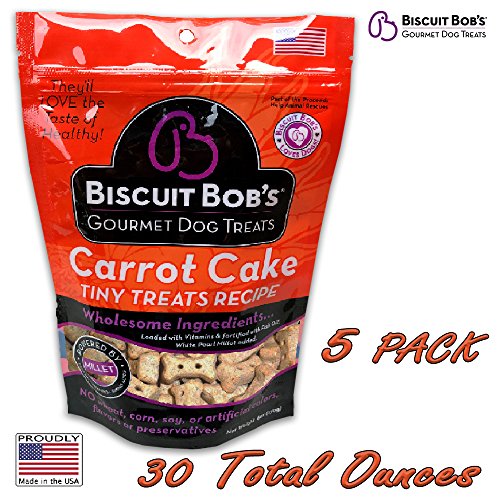- This post contains affiliate links. Read more here.
- Not a substitute for professional veterinary help.
From chocolate bars to sour gummy worms, candy comes in many shapes and sizes. You can also find it anywhere; on the sidewalk, under tables at an outdoor cafe, or even your kitchen floor. Which may make you wonder: can dogs eat candy?
The answer is likely not, though some candies are more dangerous than others. Read on to learn more about what candy is dangerous for dogs, and how even non-toxic sweets can adversely affect your dog’s health.
Can Dogs Eat Candy Safely?
The difference between rolling your eyes as you pull your dog away from a scavenged treat and taking her to the emergency vet all depends on what type of candy your dog has helped herself to.
The following ingredients should always be avoided, and if you suspect your dog has ingested any of them, it’s advised you call your vet. Asymptomatic does not mean safe from harm, and it’s better safe than sorry.
Chocolate
As you may be aware, chocolate is toxic to dogs and if enough is consumed, ingestion can result in death. As with most things, however, this all depends on your dog’s size and how much they’ve eaten.
In fact, PetMD has a handy chocolate toxicity meter that shows how even a small amount of chocolate can have grave health outcomes for your dog. (Read our guide for more about why chocolate is toxic to dogs.)
It’s recommended to never give your dog chocolate, from tiny tastes to whole chocolate bars. It’s also best to make sure that your dog doesn’t have access to chocolate. So take the brownie out of your backpack and put those truffles up in a secure cabinet.
If you suspect your dog has eaten chocolate, first try to determine how much they may have ingested. It’s never a bad idea to take them to the vet just to be safe, but time is of the essence if your dog is showing the following signs:
- Vomiting
- Diarrhea
- Tremors
- Accelerated heart rate
- Restlessness
While these aren’t the only signs your dog may give, it’s time to get them to the vet as soon as possible if they display any of these symptoms after eating any amount of chocolate.
Xylitol
Found primarily in sugar-free candy and gum, as well as reduced-sugar foods such as peanut butter, xylitol is a naturally-derived sugar substitute. It’s also extremely toxic to dogs.
The main danger in xylitol is how it interacts with your dog’s digestive system. It’s absorbed very quickly into their bloodstream which triggers their pancreas to release a large amount of insulin. This results in low blood sugar, or hypoglycemia. This can result in death if untreated and can happen anywhere from 10 to 60 minutes after ingestion.
Any amount of xylitol isn’t good for your dog, but the common agreed-upon toxic amount is 50 milligrams of xylitol per pound of body weight. This means that for a sugar-free gum that contains 1 gram of xylitol per piece, only 2 pieces could cause severe hypoglycemia in a 45-pound dog, with 10 pieces potentially resulting in liver failure.
If your dog has eaten something with xylitol, from your toothpaste to some gum left under a bench, you should call your vet for advice on next steps.
You’ll also want to watch for the following symptoms:
- Lethargy
- Vomiting
- Weakness
- Tremors
- Seizures
If your dog starts exhibiting these symptoms, time is of the essence. Get them to your vet or an emergency vet right away.
Raisins
While many pet parents know about the dangers of grapes for dogs, they may not remember raisins are just dried grapes.
From Raisinets to yogurt covered raisins, there are plenty of sweets your dog could eat that contain raisins. While some dogs don’t appear to be affected by grapes, there’s no way to test or know ahead of time if your dog is susceptible to grape toxicity. As the predominant outcome is renal failure, it’s not something you want to take a chance on.
If you suspect your dog has eaten raisins, in candy form or plain, it’s important to seek help as soon as possible. Watch out for these symptoms:
- Vomiting
- Diarrhea
- Dehydration
- Refusal to eat
If you suspect your dog has eaten raisins, and is acting strangely or exhibiting the signs above, it’s time to go to the vet. Acting quickly is key to avoiding a bad outcome for your pet, as recounted in this story by the ASPCA.
In addition to these dangerous candy additions, plain rock candy or lollipops can pose a choking threat if swallowed whole. (They’re also not great for your dog’s teeth.) We’ll cover the more general dangers of sugar consumption below.
Is There a Candy My Dog Can Eat?
While there are candies that aren’t immediately toxic to your dog in small quantities, sugar itself can be dangerous when consumed in large quantities. The reason is due to basic chemistry.
According to the ASPCA, what makes sugar so damaging to dogs is the nature of sugar molecules. Sugar is osmotically active, which means that water is attracted to it. That means sugar will pull water across a semi-permeable membrane, such as those inside animal cells.
This can result in a kind of water tug of war in your dog’s digestive tract. If your dog can’t drink enough water to balance what the sugar has pulled from their cells, they can end up with an electrolyte imbalance. Fixing an electrolyte imbalance generally requires vet care and can be fatal.
That extreme example doesn’t even cover the fact that your dog doesn’t need the kind of sugar contained in human candies, and exposure can lead to weight gain, diabetes, or even pancreatitis.
If your dog has gotten into the sweets and they don’t contain the dangerous ingredients mentioned earlier in this article, you should watch for the following symptoms of hyperglycemia (high blood sugar) and sugar toxicity:
- Increased thirst
- Increased urination
- Vomiting
- Diarrhea
That said, as long as you’re not making it a habit, a stolen piece of safe candy or lick of frosting shouldn’t harm your dog.
But I Don’t Want My Dog to Feel Left Out!
While it’s not recommended to share a bag of gummy bears with your furry best friend, there are fun dog-friendly treats you can give them.
Our catalog of homemade dog treats offers a variety of recipes and caters to every skill level.
You may want to try:
- No-Bake Coco-Nutter Dog Cookies
- Two Ingredient Baby Food Dog Treats
- Pumpkin Pupcakes
- Ice Cream for Dogs
- Doggy “Milk Bar” Birthday Cake
You can also buy fun “sweet” treats for your dog to enjoy without all the added sugar:
Three Dog Bakery Soft-Baked Cookies
Buy Now on AmazonNutro Crunchy Peanut Butter Treats
Buy Now on ChewyBiscuit Bob’s Carrot Cake Dog Treats
Buy Now on AmazonFor More Information
We have tons of articles about which foods are safe or dangerous for your dog, from common snacks to fruits. You might also be interested in Can My Dog Eat Junk Food? or Can My Dog Eat Ice Cream?

